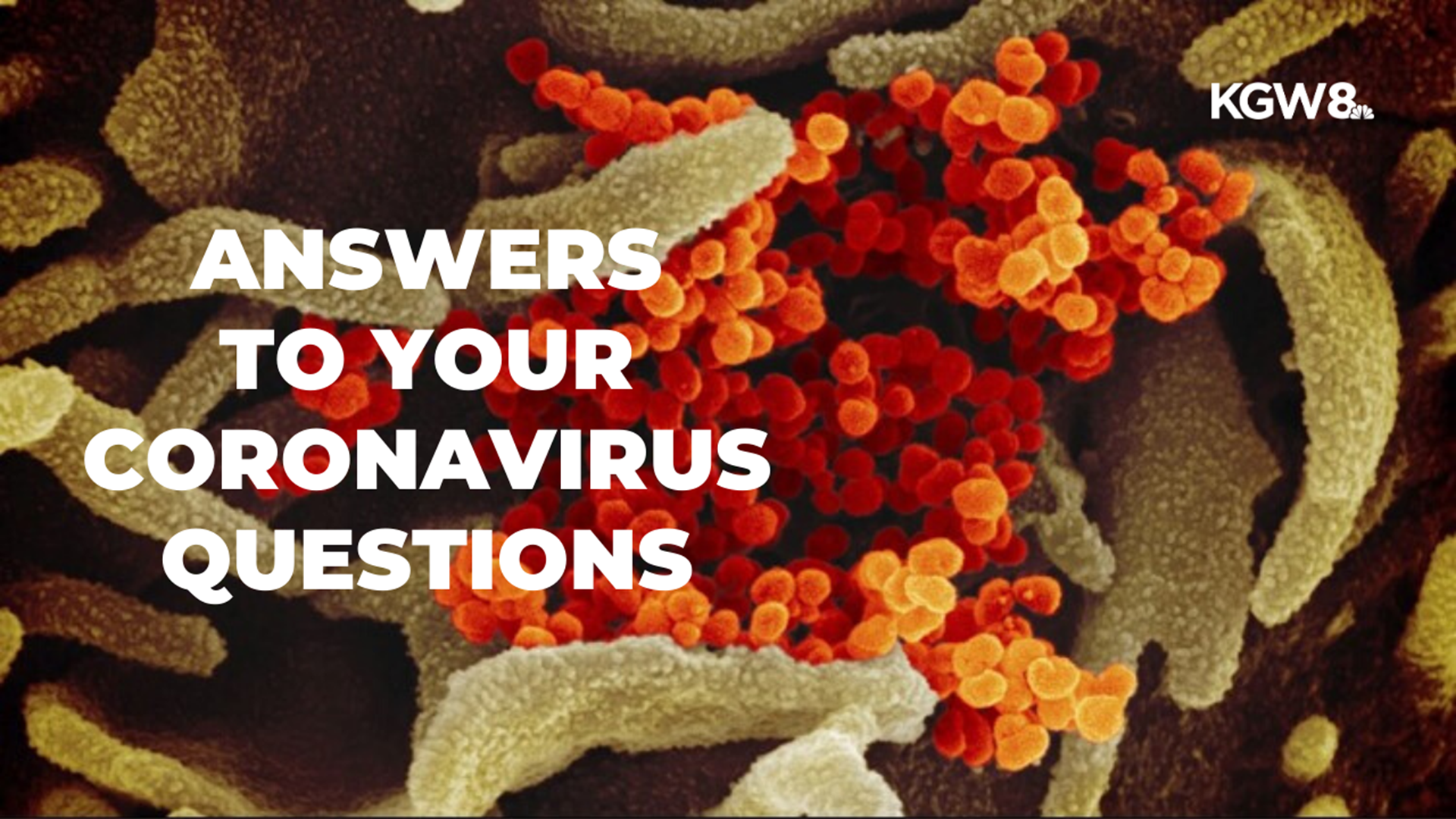PORTLAND, Ore. — As the coronavirus spreads, so does fear.
Many people have sent us questions about coronavirus over the past month. On Feb. 26, we asked you to text us or post your concerns on Facebook.
We then took those questions to infectious disease specialist Dr. Christopher Cirino at Adventist Health, who is knowledgeable on the new virus, which is proving to be a moving target.
Q: How do symptoms differ from the flu?
A: Generally, initial symptoms for this novel coronavirus and influenza are similar: fatigue, fever, dry cough, and possibly nausea and diarrhea.
With COVID-19 the main difference is shortness of breath.
Dr. Cirino says novel coronavirus symptoms can get severely worse over several days, rather than quickly like the flu.
If you develop the symptoms laid out above within two weeks after travelling from China, the CDC advises you call your healthcare provider and mention your travel or close contact with someone showing these symptoms. Your provider will work with the state public health department and the CDC to determine if you need to be tested.
"For the most part, this infection seems to be very similar to flu-like symptoms. It does cause an infection in lung tissue which is well-characterized with the flu. So, what we are seeing is greater severity of cases," Dr. Cirino said.
If you think you are sick with the novel coronavirus, health care professionals have the following advice:
- Stay home except to get medical care.
- Separate yourself from other people.
- Wear a facemask.
- Cover coughs and sneezes.
- Clean your hands frequently.
- Avoid sharing personal household items.
- Clean all high-touch surfaces daily.
- Monitor your symptoms.
Q: Should I wear a mask?
A: If you're not sick or don't work in health care, the answer is no. If you do want one, Cirino said an N95 Respirator is your best bet for protection. It filters most airborne particles from a virus - big and small - while surgical masks from the drug store do not.
Q: Should men shave their beards?
A: That question is coming up because the CDC put out a guide on facial hair years ago that is now circulating on social media. It explains some bushy styles might get in the way of face mask respirators sealing air tight. But the CDC did not recommend shaving beards to protect against the coronavirus.
Q: Is eye-wear needed in addition to a mask?
A: Cirino said people could technically wear goggles with a hood to protect against respiratory droplets getting into their eyes. Infection can occur when a mucosal surface acquires the virus through respiratory droplets. However, goggles are not necessary. You are better off avoiding touching your eyes.
Q: When are you contagious?
A: That is not entirely clear at this point, but based on similar coronavirus, the CDC said infected people are most contagious when their symptoms are the worst and they feel the sickest. Dr. Cirino said there is an incubation period (usually three to seven days after exposure) as well as the disease state. Even after symptoms improve, you could still infect others.
You could be contagious for 14 days after exposure, hence the 14-day quarantine period tens of thousands of people are undergoing around the world.
"This is an outbreak transmitted by those that are not even significantly symptomatic. So, it's a lot harder to trace and a lot harder to contain,” Dr. Cirino said. “You can look at it this way: the genie is out of the bottle and we just have to start working on risk mitigation and containment.”
The key to containment, Cirino said, will be early detection tests that will soon become available to states within the next couple weeks. Currently, only the CDC can test for COVID-19. The tests are becoming more secure and reliable, so state health departments will be able to facilitate diagnoses.
Cirino said a new vaccine will also be key to containing the epidemic.
Q: How long does the virus live outside of the body?
A: It needs a host, so Cirino said it won't live past two hours on a surface, which is why you won’t catch COVID-19 from a package from China.
Q: What should we know for spring break travel at airports and on planes?
A: While coronavirus is becoming more widespread, it's more likely you'll get the flu or another virus while traveling. To protect yourself, bring hand sanitizer on the plane and clean your hands often. Also, avoid touching your nose, mouth or eyes and cover sneezes and coughs.
If you're looking for the best disinfectant for surfaces, you’ll want household sprays or wipes that contain some percentage of bleach.
Q: How many people recover?
A: Cirino said around 80% of people have a more mild virus. The overwhelming majority of people who get the virus recover.
Most people who have died from coronavirus have underlying health conditions such as diabetes, heart disease or vascular disease. The newest numbers show the average age of people who die are in their mid-60s.
You can text us your questions about coronavirus to 503-226-5111.

